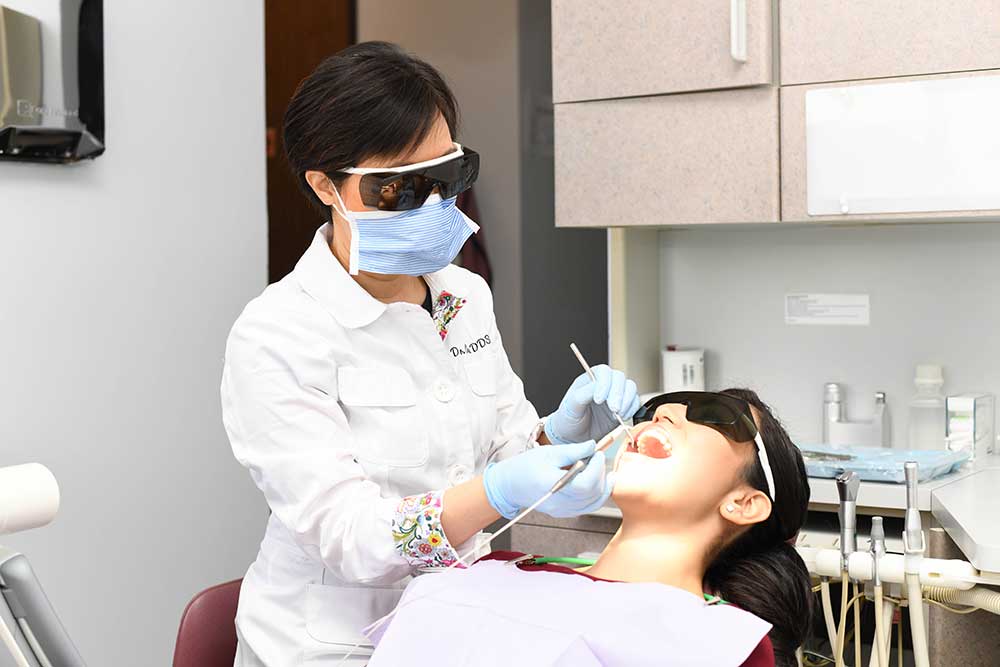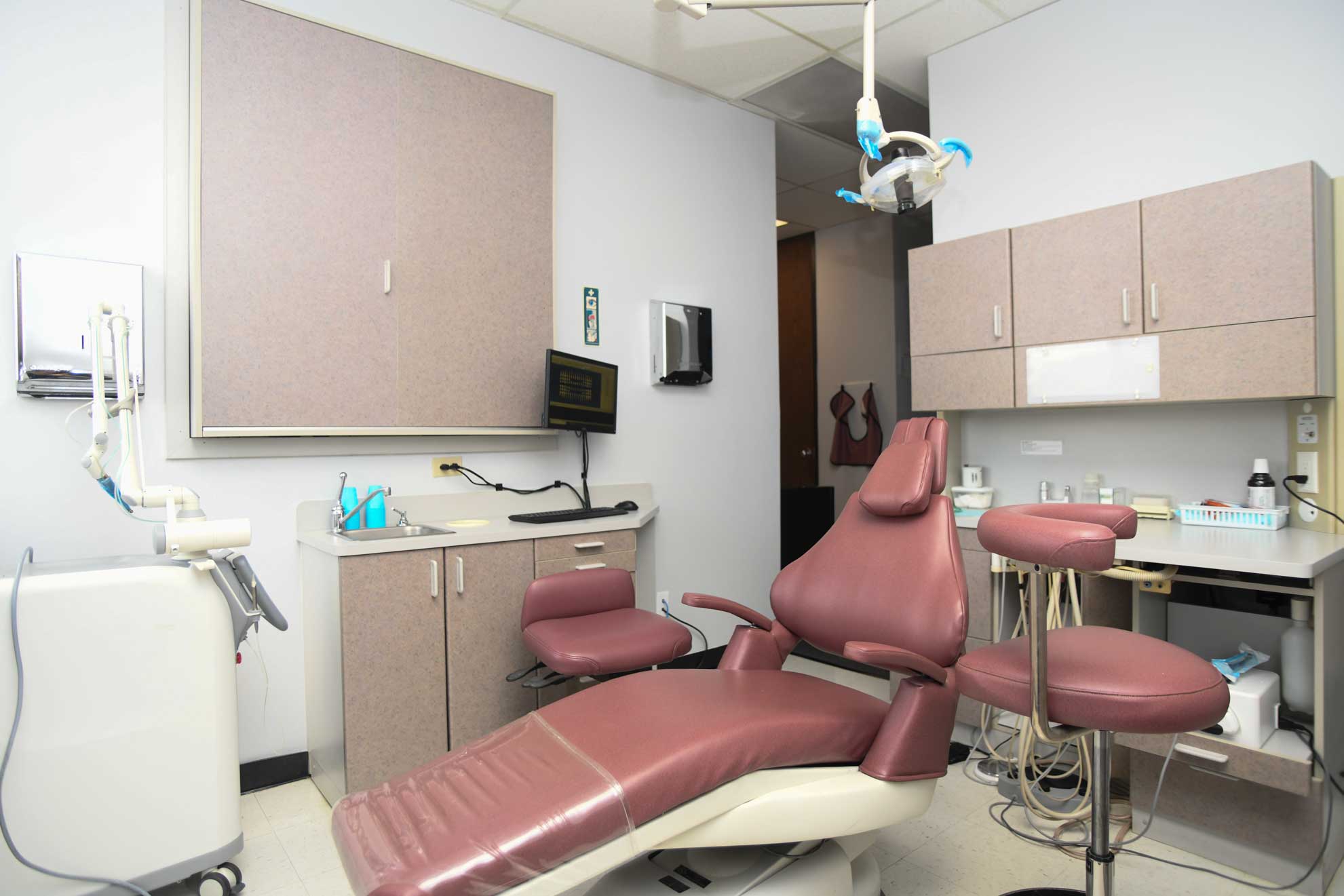Periodontal Therapy | Nottingham Dental
Periodontal Therapy refers to surgical or non-surgical procedures used to treat periodontitis and the damage it causes. Nottingham Dental is one of the best clinic for periodontal therapy in Katy, TX.
CALL US: (281) 578-0211
In This Article
Periodontal Therapy refers to surgical or non-surgical procedures used to treat periodontitis and the damage it causes. Nottingham Dental is one of the best clinic for periodontal therapy in Katy, TX.


Some people are under the false assumption that you can’t help but lose your teeth as you age. But that’s not true at all. If you go for regular teeth cleaning appointments, maintain oral health, and go for oral examinations, you can maintain proper oral health for life.
However, in order to protect your teeth, you don’t just have to care for your teeth but also the surrounding structures such as the gums and jaws. One of the most common dental issues that people suffer from is known as periodontitis. This is a gum disease that threatens your gums and underlying bone tissues. If you suffer from periodontal disease, you need to seek effective periodontal therapy immediately.
Please continue reading for a detailed discussion of the periodontal procedure and the necessity of finding a dentist specializing in gum disease.
No matter how well you brush and floss your teeth, you can still get peritonitis and gum disease. This is because the food particles stuck between your teeth eventually lead to the formation of plaque and tartar, which leads to bacterial decay. If you don’t go for regular teeth cleaning appointments, your dentist won’t be able to catch the dental decay in time, which leads to periodontitis.
Periodontitis, however, doesn’t happen immediately — it happens gradually. The first stage of gum disease is gingivitis, which is the phase in which bacterial infection has only spread to the gums and no further. However, if you don’t treat gingivitis, the bacterial infection spreads into the underlying bone structure, widening the gap between your gums and teeth. This is periodontitis and it requires immediate attention.
If you don’t treat periodontitis promptly, it can lead to terrible consequences:
As you can see, periodontitis doesn’t just have terrible consequences for your dental health but your general health as well.
Periodontitis is definitely curable. However, periodontal therapy can take many different forms depending on how it has affected you. The primary goal of periodontal therapy is to restore your gum tissues to their original state and restore oral health. Periodontal therapy can range from non-surgical procedures to surgical procedures as well. The following is an overview of the different types of periodontal procedures.
Sometimes, periodontitis destroys parts of your gum tissues. In this case, the dentist will have to remove those infected gum tissues to prevent the disease from spreading. However, this will also weaken your teeth because gums hold them in place. If that’s the case, the dentist will have to use the gum grafting procedure to reinforce your gums. To do so, they’ll either take healthy gums from another part of your teeth or laboratory-processed donor tissues and graft them in the desired location. This will facilitate the healthy regeneration of your gums.
Scaling is a procedure in which the dental hygienist or dentist uses a scalar device to remove all of the accumulated plaque and tartar from the surface of your teeth or from between your teeth and gums. Following that, the dentist must perform the root planing procedure. During the root planing procedure, the dentist smoothens the surface of the root and reattaches it to your teeth. This closes the gap and treats the receding gum line as well. Furthermore, in cleaning the surface of the root, the dentist also gets rid of the accumulated bacteria.
This is a periodontal procedure in which the dentist has to remove the diseased gum tissues to prevent the infection from spreading. After that’s done, the dentist will reshape the gums using a scalpel or a laser so they look healthy. Lasers, however, are far more effective, more accurate, and they cause less discomfort.
This is a procedure in which the tooth structure underneath the gums and bones will be exposed either for cosmetic purposes or to attach a dental crown.
If you don’t treat periodontitis promptly, you may just lose your tooth altogether. Dental implants are some of the best replacements for the lost teeth. In this procedure, the dentist will attach a titanium post to the jawbone underneath the socket of the missing tooth. Your jawbone will then grow around the metal post, making it a part of your body, and then a replacement tooth or dental crown can be placed.
You can prevent periodontal procedure if you simply maintain oral health and go for regular teeth cleaning appointments. The following tips will help you avoid periodontitis:
If you have advanced periodontitis, you can’t treat it with non-surgical procedures like scaling and root planing. Advanced periodontitis indicates that the disease has spread into your bone structure and infected the roots of your tooth. If you have advanced periodontitis, the dentist will recommend surgical periodontal treatment.
Soft tissue grafting is a periodontal treatment necessary if your gemlike recedes because of periodontitis. The dentist will have to reinforce some of the receded gum tissues. The dentist will remove some of the tissues from your mouth and use donor tissues to supplement the lost tissues. As such, this periodontal treatment will prevent further gum recession and cover the exposed roots.
Flap surgery is a periodontal treatment in which your dentist will make small incisions on your gums to lift a portion of your gum tissues. Advanced periodontitis often affects the underlying bone structure. As such, the dentist will have to perform contouring on the bone before suturing the gum tissue in its place.
Guided tissue regeneration periodontal treatment facilitates bone regeneration after a significant bone loss. This procedure is also meant to rectify bone loss due to periodontitis. However, in this case, the dentist doesn’t use bone grafting material. Instead, the dentist will place a biocompatible fabric between the exposed tooth and the bone structure. This will allow the bone tissues to grow back naturally.
Bone grafting periodontal treatment is necessary if the periodontitis has significantly damaged your bone tissues. The bone graft may be taken from another individual, another part of your body, or it may be synthetic. The bone graft will facilitate bone regeneration and hold your tooth in place to prevent further bone loss.
If you’re anywhere near Katy, TX, then one of the best periodontal dentist near your location are at Nottingham Dental. We have some of the world’s finest dentists and some of the latest equipment with which to treat periodontitis without taking drastic measures like dental extraction. For more information, please schedule your periodontal therapy today.

|
WE ARE NOW OPEN & SEEING PATIENTS
|